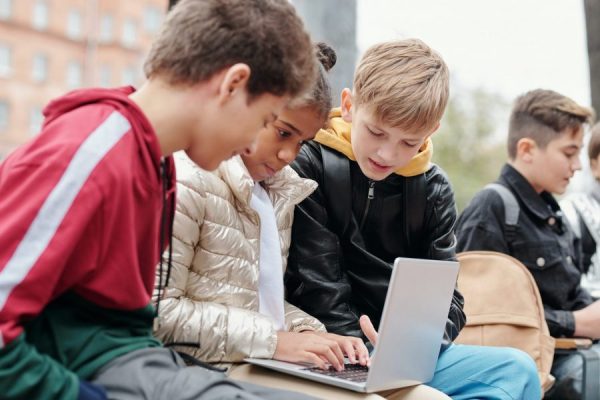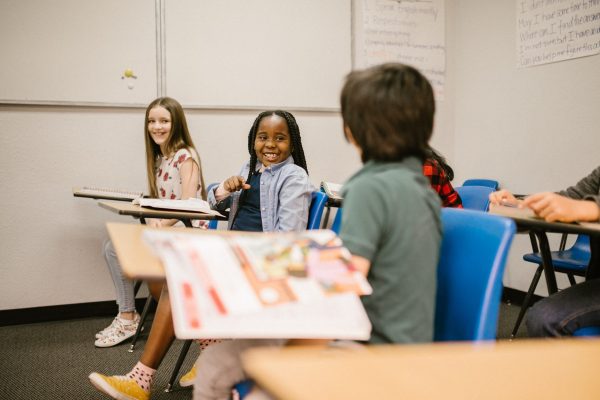For Parents/Caregivers

What are conduct problems in teenagers?
As teenagers grow and develop, they are going through lots of changes. They are making new friends, facing new social situations, and becoming more independent. Teens can have very hard moments, take risks and push limits, and show some difficult behaviour. This is often nothing to worry about, and many teens grow out of this with support from their parents, carers, and teachers. However, sometimes very difficult behaviour can be a sign of more serious behaviour problems. According to the Royal College of Psychiatrists signs of more serious behaviour problems (often called ‘conduct problems’) include:
- Bad behaviour that lasts for two months or more
- Repeated cheekiness, aggressiveness, and not obeying rules
- Behaviour that seriously breaks rules/norms at school and at home – and goes beyond what would be thought of as typical playful bad behaviour or disobedience to authority
Conduct problems can be very distressing for young people themselves, for their families, and for their educators.
Our team at the UCL Developmental Risk and Resilience Unit carries out research projects that aim to support more effective prevention and treatment of conduct problems. We want to gain a better understanding of young people with conduct problems (as well as young people without conduct problems) and their social surroundings. Once we better understand the challenges these young people and those around them face, we will be in a better position to meet the individual needs of young people with conduct problems and their teachers and parents/caregivers.
What is our project about?

In this project we are especially interested in gaining a better understanding of how teenage boys think about positive signals from others (such as happy faces and laughter). We are interested in this because responding to and caring about positive signals from others is important in building and maintaining relationships with other people.
We are also interested in whether whether helping increase sensitivity to positive social signals can reduce difficult behaviour and increase kind/helpful behaviour (‘prosocial’ behaviours). If this project is successful, we hope to eventually be able to offer the games involved to schools to be used as part of behaviour management strategies in a way that is able to last, and requires no extra resources.
We would love to hear from you!
If you have any questions or are interested in being taking part in our research, please contact us! For a link to resources for parents and teens impacted by difficult behaviours, please see our ‘Background and Further Resources’ page.
More Information
Who can participate in this project and what does it involve?
This project is aimed at boys aged 11-16 with a range of behaviours. The boys that take part will be invited to complete a research session at their school. This session will take 2 hours and will involve completing questionnaires, doing problems solving puzzles, and playing computer based games assessing positive emotion processing.

During the games, children will have the opportunity to win up to £10 of Amazon vouchers as a big thank you from us for his participation! We will ask a teacher familiar with children involved to fill in a questionnaire about their behaviour at school.
We work with teachers make sure that children do not miss any important lessons by taking part.
Some children will also be invited to take part in a longer project (consisting of eight project sessions total) over the course of the school term
What will happen if my child is selected to participate in the longer project?
In this extended project, we want to find out if we can increase sensitivity to perceiving positive emotions in adolescent boys, and whether doing this will increase prosocial behaviour and reduce disruptive behaviour at school.
If he is selected to take part, your child will take part in six short (less than 8 minute) sessions where he plays a game that asks him to judge whether a face is expressing happiness or anger. He will be randomly assigned to one of two groups: in one group, this game will encourage his attention towards happy faces, and away from angry faces. In the other group, the game will be played as normal (with no encouraged attention towards happy faces).
At the end of these sessions, he will complete the initial long session a second time (see section #2).
He will also complete a short diary about his behaviour at school, and his teacher will do the same.
If he completes the full extended project, he will be able to win up to a of £30 additional Amazon vouchers (given in small amounts across sessions in recognition of his time). This is in addition to the £10 of vouchers he can win in his initial session.

We will ensure that your child knows that any information he shares is voluntary and kept completely confidential by our team unless we are worried that there is a risk of harm (see ‘ What happens to information we collect’ on the next page).
We will also work with your child’s teachers to ensure that he does not miss any important lessons by participating in our project.
Please note: all of our researchers have a full DBS enhanced disclosure, and all information is kept strictly confidential unless we worry that your child, or anyone else, is at risk of harm (see ‘what happens to information we collect’ on the next page)
Do children have to take part?
This project is voluntary.
Even if parents are happy for their child to participate the child will still decide for himself. It will be explained to him that he can stop taking part at any point without giving a reason.
What do we ask parents and caregivers to do in this project?
We will ask parents and caregivers to complete a voluntary questionnaire about their child’s background and behaviour at home.
![]()
This questionnaire can be completed on a secure online platform. If parents choose to complete this questionnaire, they will receive Amazon vouchers as a big thank you from us for their time. Please contact us for more information.
